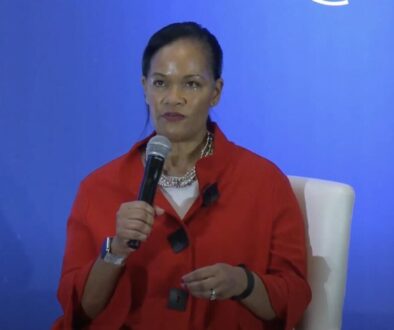The 3 Rules to Fighting Fair During an Argument in Your Relationship

There are going to be arguments in a relationship—that’s inevitable. Sometimes you’re going to argue about the fastest way to get to your favorite date night spot, and other times, you’ll have bigger arguments about how one person doesn’t feel valued. When you’ve decided to spend your life with someone, arguing comes with the commitment.
But this doesn’t mean you can’t argue productively. We all have our own ways to resolve conflict, but it’s not always the healthiest. Our communication styles could be something we’ve developed through experiences or just something we’re comfortable with. Follow these rules to have better arguments that lead to you both making up in the best way.
Bringing Up Unrelated Issues in an Argument
It’s not fair to slip in other problems that have bothered you in the past when you’re upset with your partner about something that they did in the current moment. An example of this would be if your partner didn’t let you know that they would be home late. Once they get home, you’re upset and decide to address the issue while also talking about other upsetting things he/she has been doing lately; like leaving dishes in the sink, forgetting the dry cleaning, or slacking in the romance department. Mentioning past problems, whether they have been addressed or unaddressed may immediately feel like an attack on your partner and cause them to get defensive or spark a larger argument.
Address one problem at a time. If something has been bothering you, choose a calm time to express how you have been feeling in a non-confrontational manner. And if there is a reoccurring problem that you and your partner can’t resolve, it may be time to seek the help of a couple’s therapist.
Sometimes we get defensive when our partners bring up something that bothered them. This can be because our ego has just been bruised or we feel exposed because it forces us to address our flaws
Playing the Blame Game
Sometimes we get defensive when our partners bring up something that bothered them. This can be because our ego has just been bruised or we feel exposed because it forces us to address our flaws. Rather than speaking about our feelings, or understanding where our partner is coming from, we start to blame and make statements that start with, “What about that time when….” This can cause your partner to feel frustrated, misunderstood, or even unloved, which can escalate or elongate the argument and injure your connection.
Instead, acknowledge your part in the problem, accept it and take the steps towards change for the better.
Avoid Responsibility
Do you tend to avoid acknowledging how you’re actions or thoughts have caused or contributed to a problem? It’s important for you both to acknowledge that you’re in a relationship and sometimes that means both of you need to take responsibility for the problems that occur.
Even when you have a problem with something your partner has done or there’s a reoccurring issue, take a step back to examine your contribution to the situation. The sooner you or your partner take ownership of your part in a problem, the sooner you both can start working towards a solution.
 At CWC Coaching, our team consists of licensed therapists, life coaches, and counselors. We assist clients with self-improvement, career development, negative self-talk, psychological pain, self-sabotaging behavior, past hurts and finding your purpose.
At CWC Coaching, our team consists of licensed therapists, life coaches, and counselors. We assist clients with self-improvement, career development, negative self-talk, psychological pain, self-sabotaging behavior, past hurts and finding your purpose.
If you are ready to increase your self-awareness and happiness, breakthrough limiting behavior and understand your purpose in life, we’d love to help guide you on this journey.




